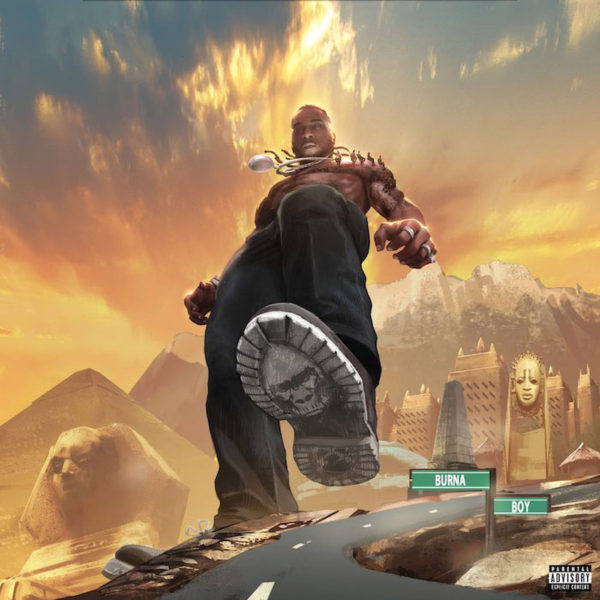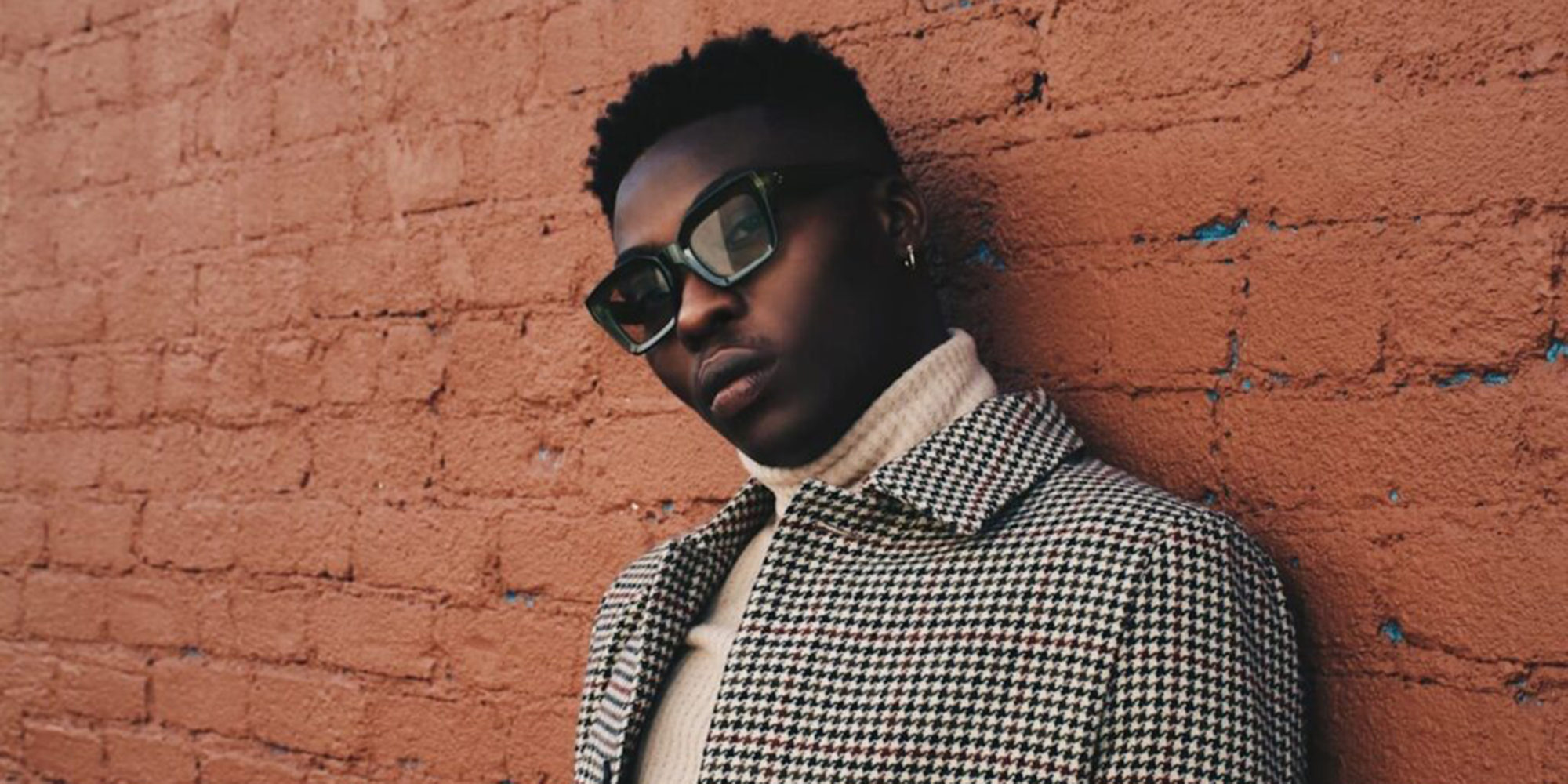Reekado Banks rose to national prominence in Nigeria with his 2016 release, Spotlight. True to naija pop’s eclectic tendencies, the album incorporates elements of hip-hop, dancehall, highlife, Afrobeat and even soukous from Congo, and showcases a rich voice and thoughtful lyrics. His 2020 EP Off The Record continues the trend. Banning Eyre reached Banks by Zoom in Lagos to discuss his work and career. Here’s their conversation.
Banning Eyre: Reekado. Very good to reach you. To start, why don't you introduce yourself?
Reekado Banks: I’m Reekado Banks. The name came about when I was just about to get signed to Mavin Records. I used to be Spicy, but at the time, there was another Spicy on radio, so I decided to change my name. After getting signed, we started a name hunt. By we, I mean me, my manager at the time, my label boss Don Jazzy. We kept looking for names that would suit. And we came up with Reekado Banks, and I had to bear the name take on the responsibility.
What does it mean?
Reekado means “ruler” in Spanish, so I could affiliate with that, and Banks sounds like money! It really doesn't mean so much. It just is a nice name.
It has got a ring to it. But let’s go back. How did you get into music in the first place?
I grew up in the church. My father's a pastor. So I grew up around music. Everyone in my house was singing pretty nice, aside from my mom. I used to play drums while I was growing up. Not so much anymore. I am bad at so many instruments right now. Thank God for the vocals!
I remember writing my first song when I was really little, about seven or eight. I continued to go on like that until I was about 14 years old. I was done with high school, because I finished high school really quick. I couldn't join the musicians’ union, because I was too young to go to the union. You had to be 16. so I spent most of my time writing music.
At some point my dad came in and got me my first studio. And my immediate older brother was my earliest guide. He used to produce most of my songs at the time, and he went on to manage my professional career for about three years, until recently when I changed managers. So the journey has been really interesting. I'm happy to be talking about it right now.
It sounds like you got a lot of support from your family. I've interviewed a lot of artists who had to fight against attitudes of their parents—you know, that music was not a reputable profession. But your dad actually bought you a studio. That's amazing.
He did. He bought his first studio, for me and my brother.
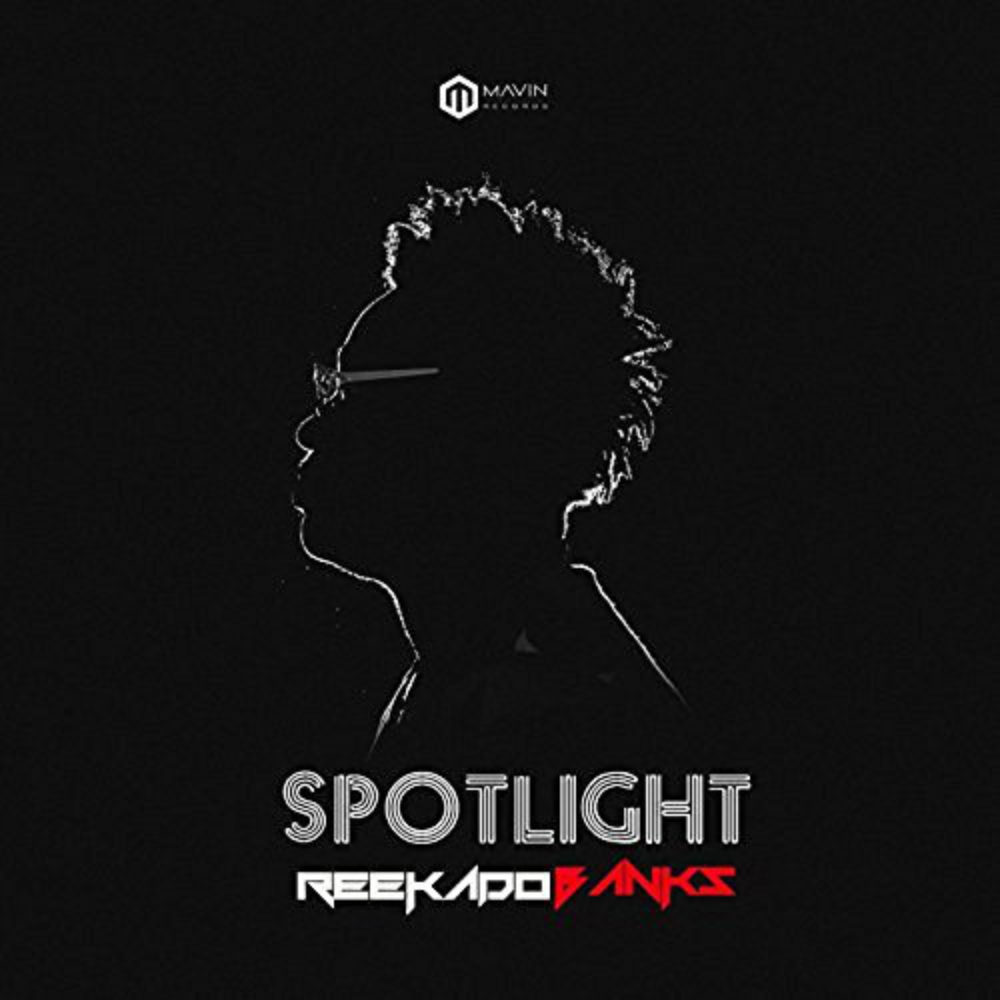
You have beautiful harmonized vocal in your music, so I'm not surprised to hear you grow up in the church. On your 2016 album Spotlight, I hear so many different influences. Juju on “Change,” soukous guitar on “Ladies and Gentlemen.” Afrobeat elsewhere. It is a richer mix of styles than I'm used to hearing on so-called Afrobeats albums. Talk about that.
I would say this was unplanned. Before now, my music was just vibes, whatever I was comfortable making. Right now, it's more about the message I'm trying to pass. I'm open to everything. But at that time, I did a whole lot of different stuff without even thinking about what I was doing. I just wanted to pass my message through different melodies, through difference sounds, and just get people vibing. I just wanted to sound as versatile as possible. I wanted to prove a point. If that makes sense.
It does. And you did. It shows that you have listened a lot. One thing I notice is that there's a lot of guitar on that record. Do you play?
No, I do not even play the guitar, but in one of my songs, “Blessings on Me,” I said, "I find love in my guitar." Before I even wrote that line, I didn't think I found so much love in guitar, until I had to look back on my music, until I had to reach down to see what really inspires me. And it really is the guitar.
You talk about messages. That's obviously important, the soul of a song. Maybe just pick a couple of songs from Spotlight and tell me about the message.
On “Change,” for example, I was talking about real life. I was talking about the government. There was a line where I said, "You no want to change but you wanna get the change that will be.” And that just simply means that you have to change if you want change. You have to do something differently if you want something different to happen. So a song like that is really motivational. And I received so many messages for how it helped other people to get through their hard moments and stuff, and even get into better positions.
And many other songs. Like “Olauluwa” was more like praises to God for peace and health, and of the good life I'm living. Which so many people can relate to.
Let's talk about “Change” for a minute. It's a universal message, but it's also relevant to what's happening in Nigeria right now. I've talked with other artists about the paradox of Afrobeats, honoring Fela, but not so much embracing his courage in speaking out about social and political problems. Is that something you still feel the need to sing about, the need for change in society? Especially now in the End SARS moment.
I am totally involved in everything that's going on right now. In the country, I'm involved with my voice, I'm involved with my money. I was able to feed different batches of youths during the protests, just keep them out there to keep fighting for what we believe is right. I'm so happy that even before now, I was able to make a song like "Change" and afterwards, I have more songs on this topic. And this is something I will keep doing until we get results. Because we can't keep living like this, to be honest. Bad governance has to end. It's been going on for 60 years, as long as we've been a country, and something has to happen now. And the youth are totally awake, and more importantly, they have one voice, and I think that's all we need.
If we stay this way, we will definitely overcome all of this. So I am going to be playing a very big role in keeping everybody conscious, and having some positivity in what they're doing. The government doesn't think we are doing the right thing protesting for what we deserve. They're using fear and all of that, but with my voice, and the collaboration of every other person that stands in favor of this voice, we will keep doing this. Fela did this, so we will definitely continue.
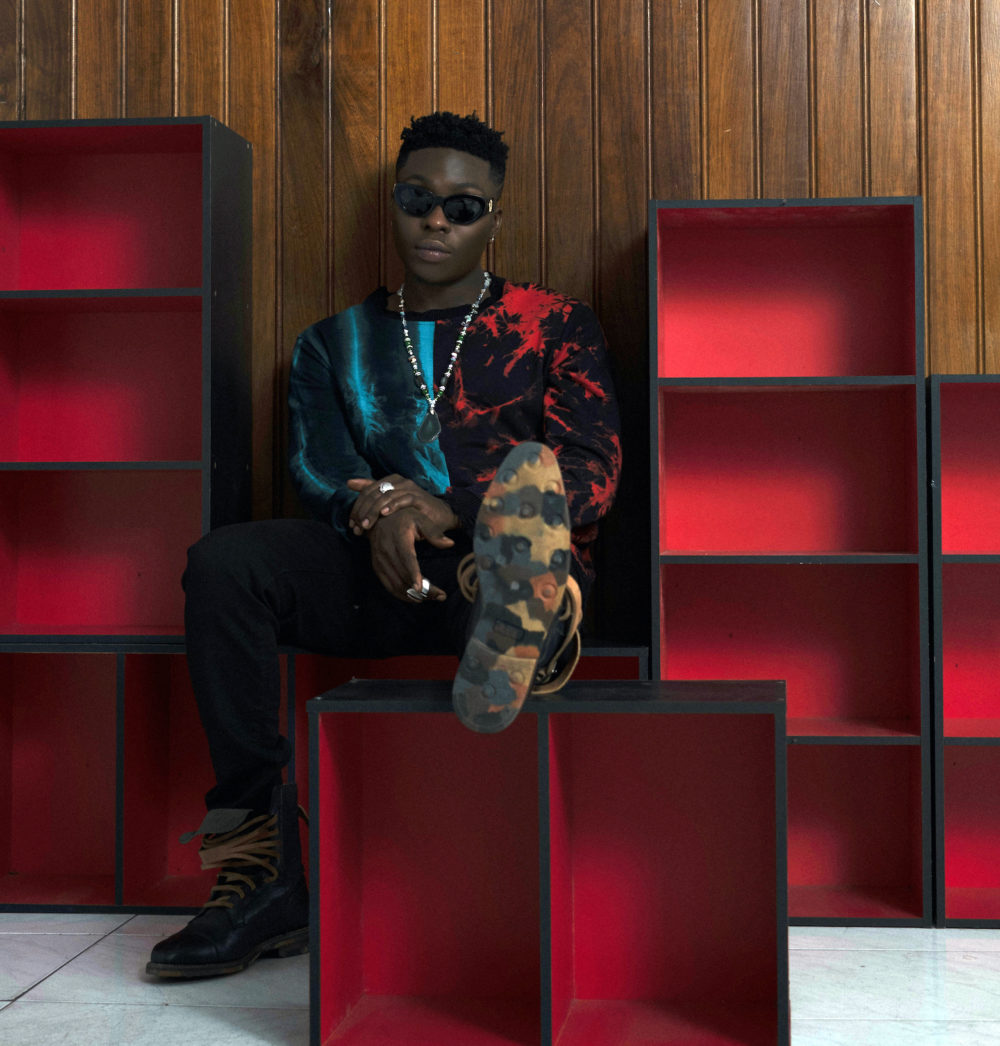
I think that the way things are now with Nigerian music, you have probably more power than Fela did then. Because music now is one of Nigeria's greatest exports. You guys are becoming so popular and well-known around the world. You have a real platform, and it's great that you're committed to using it that way. Do you think that's something that has changed in your generation of musicians in the last few years? Is this part of a process, or do you think it's always been in people's hearts to protest?
Historically, there have been many artists before us that have used their voices to speak up for the people against the government when they were doing bad stuff. So I don't think this is a now thing. It's just that now we are really bent on seeing a solution. We will definitely see in the next election, we will get everybody involved. We'll get every youth involved. Because we’re at the point right now in this country, like I said earlier, the government uses so much fear as a tactic on the people. So we need to be able to enlighten the people and let them know that they have the voice. If anything has to happen, I'll take it upon myself to enlighten everybody. I just need everybody to be conscious of what's going on, because that's the only way we can have a solution.
Let's talk about this new EP, Off the Record. Was there an idea behind this release?
Yes, yes, yes. The idea behind this was to work on a couple of projects that would keep giving the fans something while we work on a bigger body of work. Like right now, I'm working on my album for 2021, somewhere around June or July, by God's grace. But before that, Off the Record is just to give people stuff to listen to for the moment. And what's so nice about Off the Record is that it's so timely, because the message and the songs on the EP are like spot-on with what's going on right now in the continent, in the world at large.
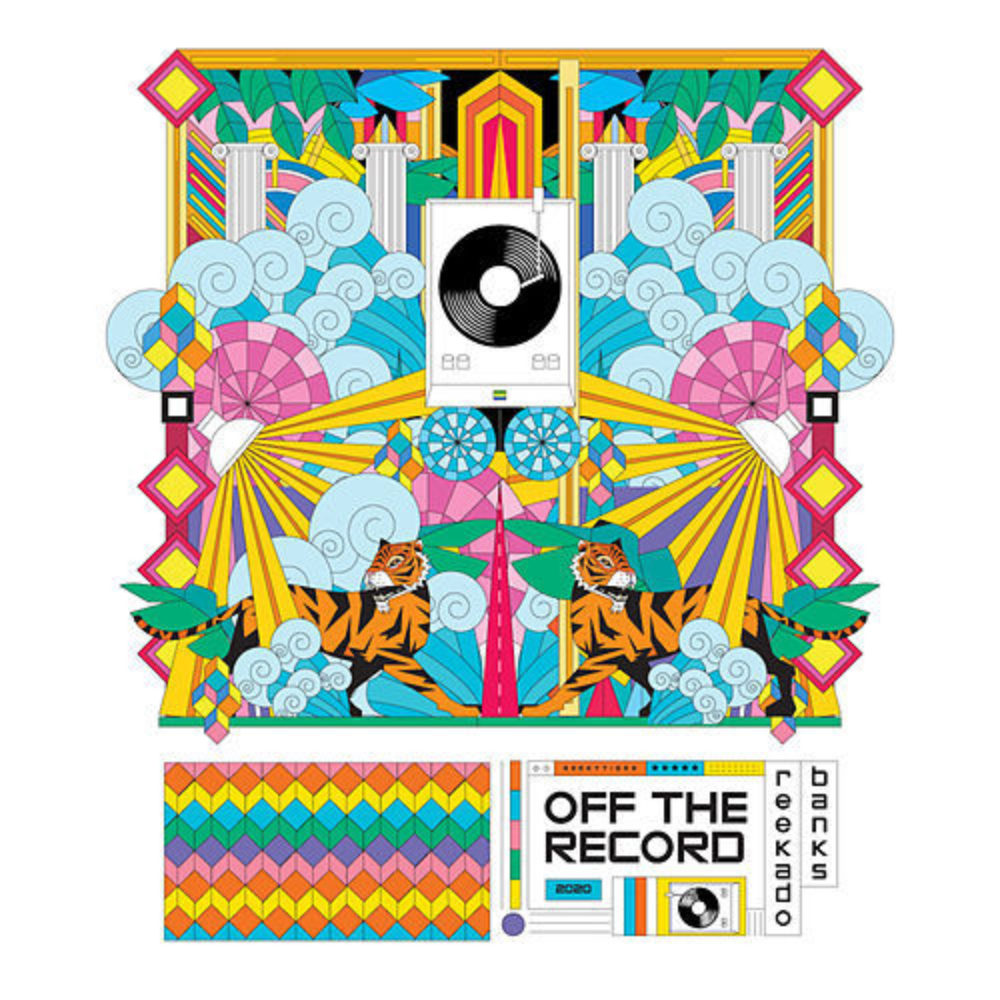
Tell me about a couple of the songs and how they relate.
Talking about “You Dey Mad,” the latest single off the EP. It features AttiFaya. That one talks about the society and opinions of people and stuff, and how you don't want to listen to anybody. You just want to shut them off. A song like “Happy Yourself” talks about police brutality and how we have to move on regardless and stay happy. These are protesting songs. And they are just right for the time.
Tell me about the song “Mama” featuring Harmonize. Right off the bat, you mention Ghana and South Africa, and I hear old-school highlife in that song.
That's the one for Africa. Africa is the Mama that I'm talking about here. I'm just talking about the good places in Africa I want to take my love interest to. And I employed the voice of Harmonize from Tanzania, and he came to sing on the song.
There’s one song here that sounds really different from the rest. “Needed More” with Kida Kudz.
Yeah. That was my attempt at something different. Usually my music is always slow and melodious. That was just my attempt at something a little harder. With the beat, you could tell that it's like my take on hip-hop. To solidify that, I was able to get Kida Kudz with his U.K. vibe, and EO also, just to get to that market. They are cool friends of mine. So it’s pretty easy to get them on board.
What about the song with Mr Eazi, “People Dey.” This is a very sweet song.
The song talks about the everyday life. It's just about people and the differences in us, and how we have to just keep going. There are differences, but we can't do so much about them; we just have to accept people for who they are and keep getting on with life. It's what everybody needs, because like you said earlier, not so many people have their parents to support them, and they had to keep going. So this is just one song that touches on that topic.
Let me ask you about one more: “Speak to Me” with Tiwa Savage.
“Speak to Me” is a beautiful one too. It's up-tempo dance music. Something that's kind of banging at weddings a lot. I made this song Tiwa Savage and Young John, the producer. It is just a really good vibe. In this I'm talking about love and time to be with my love interest, and damn every other person but her.
We met Young John when I was there. He's an interesting guy. And I gather he also came out of the church. Seems like a lot of the Afrobeats artists have that background. That reminds me. I have to ask you about that very amusing moment in Spotlight. It’s just called “Skit.” And we hear a female preacher leading a gospel song.
(Laughs) Ah, that was Kenny Blaq. I don't even know what inspired him to do that, but we just asked Kenny Blaq to come up with song for the album, and he did that. And it was just amazing. We couldn't not use it.
I hear you, and the old-school African gospel sound in there is very nice.
You know a lot about Nigerian African music.
Well, I've been listening a long time. You know one thing I really like about the scene now is that the artists, even the top artists, all seem to like working with each other. Everybody's always guesting on each other songs. There's a nice feeling of solidarity. Is that really how it is?
Personally, I don't even have so much space in my heart for beefs. So I wouldn't do what isn't comfortable for me. And collaboration is just a lot better. So I stick with that. It's not even really so much logic. It's just what works for me.
O.K., but beyond you, the whole scene seems to be much more cooperative than in some places. I think that sends a message.
Yes, yes it does. It totally does. I totally love what's going on in the industry. Everybody's working with everybody. That's really the way we are getting bigger. Because we are mixing, we are collaborating. Different fans, different people. And the crowd is just getting larger. That's the result of it.
It’s exciting to be in this time. I really take some time and just stay grateful for who I am, and the part I am playing in all of this. I really can't wait for more people to get acquainted with me, my sound, my voice, my face. But until then, I'm happy for where we are right now. I can't wait for 2021, and I can't wait for things to open up so we can keep having more beautiful moments.
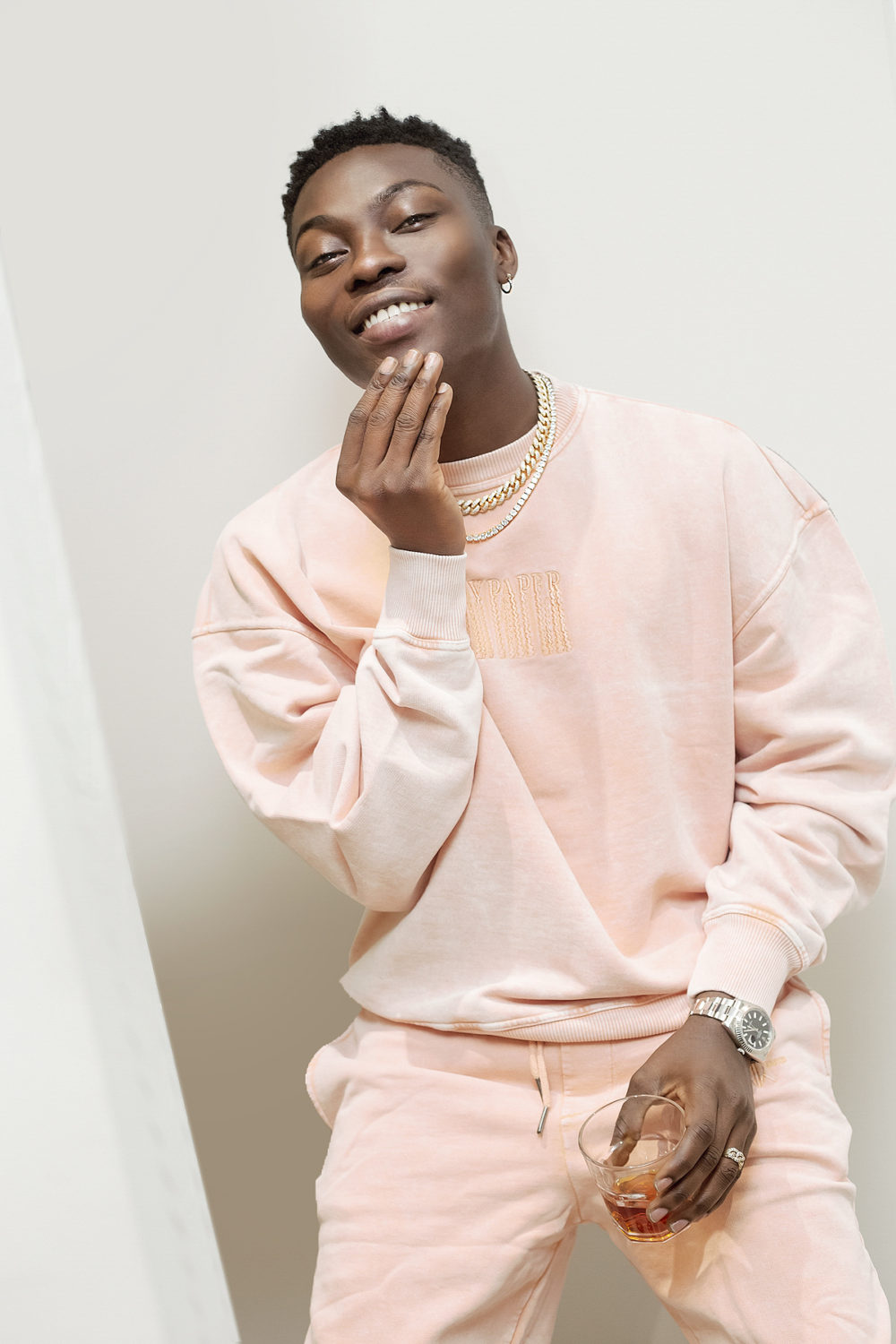
I have to ask you about the song “Dangote,” about the famous Nigerian businessman and philanthropist. Do you think he ever heard the song?
Oh! “Dangote”!
He must've heard it.
I think he did.
But he didn't write you a thank you letter.
No he didn't. I think I would've remembered if he did.
Yeah, I think you would. Let me ask you one more question about terminology. Our show is called Afropop, and for a while people didn't like the word as it was too general. They wanted it to be specific to their country or particular genre. And then Afrobeats came along, and that created a lot of confusion because of confusion wih Fela’s sound. And now I see that some of the Afrobeats artists are embracing the term Afropop. You have any thoughts about all this?
I never wanted to experience all of this mixup. But I know that Afrobeat was started by Fela, and there is a sound, there is a genre called Afrobeat that Fela created. Using the name Afrobeats as an umbrella for our sound, is just paying homage to Fela. It's not necessarily killing what he started. We just want to be under that umbrella, because Fela opened it up for us. I don't know what it would feel like if we call it something else. But Afrobeats lets us remain under the shadow, or like the umbrella of Fela, which is really beautiful and big enough for everybody to fly.
In the end, it's the music that counts, not so much what you call it.
That's right.
Your generation is reaching people in so many countries. Back in the day, most people who didn't speak English probably never even heard of Fela. For a long time, people were much more boxed in in their countries. But now with all the satellite TV shows and contests, there's much more of a feeling of coming together, especially in Anglophone countries. It's quite beautiful, because it's kind of an artistic realization of the whole pan-African idea that people like Nkrumah and Senghor had back in the ‘60s. I feel like on the musical level it's kind of happening now.
Yes, yes, yes. Right now, we can reach a whole lot more people, and obviously technology is now the main reason we can do that.
Thanks, Reekado. It's great to talk with you and I look forward to seeing you in New York one of these days.
Yes sir.
Related Audio Programs
